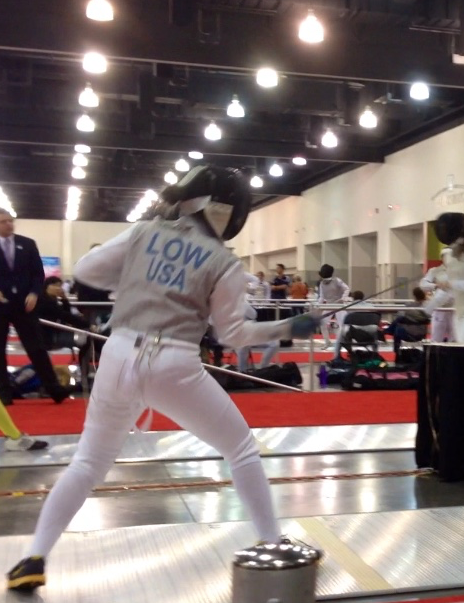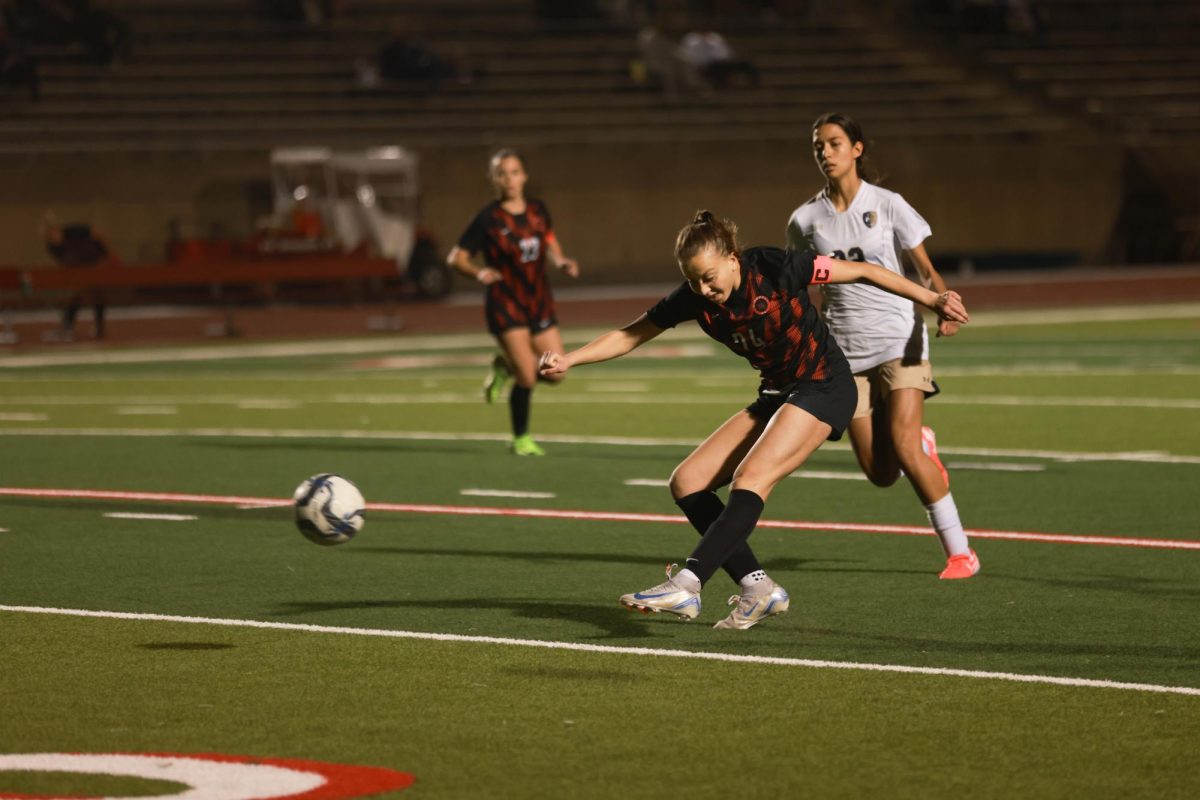Lili Lomas
Staff Writer
It’s 6 p.m. on a school night and Coppell High School sophomore Sarah Low puts on her layers of gear and heads to the gym to practice a highly praised, yet uncommon sport- fencing.
Low has been fencing for more than three years, trying it out first at age 12. She became interested in the sport through a friend who was already involved, and soon after began an introductory class to learn the basics of fencing.
Now, Low trains nearly every weekday at the Fencing Institute of Texas in Farmers Branch. She practices “foil,” one of the main fencing styles which involves a sword-like weapon.
Besides the fun she has while fencing, for Low part of what sets the sport apart from others is the speed and strategy needed to succeed.
“[You have to] outsmart your opponent and be a lot faster than them because they are trying to outsmart you at the same time,” Low said.
Anyone tied to or involved in the sport in any way, such as Low’s mother Pearl Low, knows that there is more than just swift movements to be a good fencer. Logic is needed which Mrs. Low says makes the sport so difficult.
“You must learn and analyze your opponent throughout the game,” Mrs. Low said.
Low’s mother believes that the challenges fencing poses, such as the mental and physical agility needed, are beneficial to her daughter.
“I am so glad Sarah is in fencing,” Mrs. Low said. “It has taught her to be an achiever and never give up.”
Low qualified for the Junior Olympics in 2015 in Richmond, Virginia. To qualify, Low had to earn points by beating other people in fencing tournaments which was no easy task due to the fierce competition. Low’s teammate, CHS freshman Grace Hao, recognizes this talent and determination.
“She’s really fast and persistent,” Hao said. “She’s strong and it’s really hard to hit her.”
Intensive training is necessary to know which move is most beneficial in the moment. Also, one must practice the moves repeatedly to become swift and agile in order to subdue their opponent.
“I like how it’s a sport in which you have to really use your head a lot,” Low said. “It’s described as chess at 100 miles an hour.”
Fencing is also unique to Low because not many people are part of this sport.
“The community is pretty small,” Low said. “You go to national tournaments and you end up seeing the same 100 people over and over again.”
In one age group there are about 150 fencers nationwide, compared to the thousands in other sports.
“The community is great and there’s a lot of nice people,” Low said. “[That’s why] I love competing.”
The people involved in fencing as well as the strategy needed are a big part of the reason Low succeeds in this uncommon sport.
Overall to Low, it is a fun activity to be a part of which is why, as her mother put it, she continues to “keep calm and fence on.”









